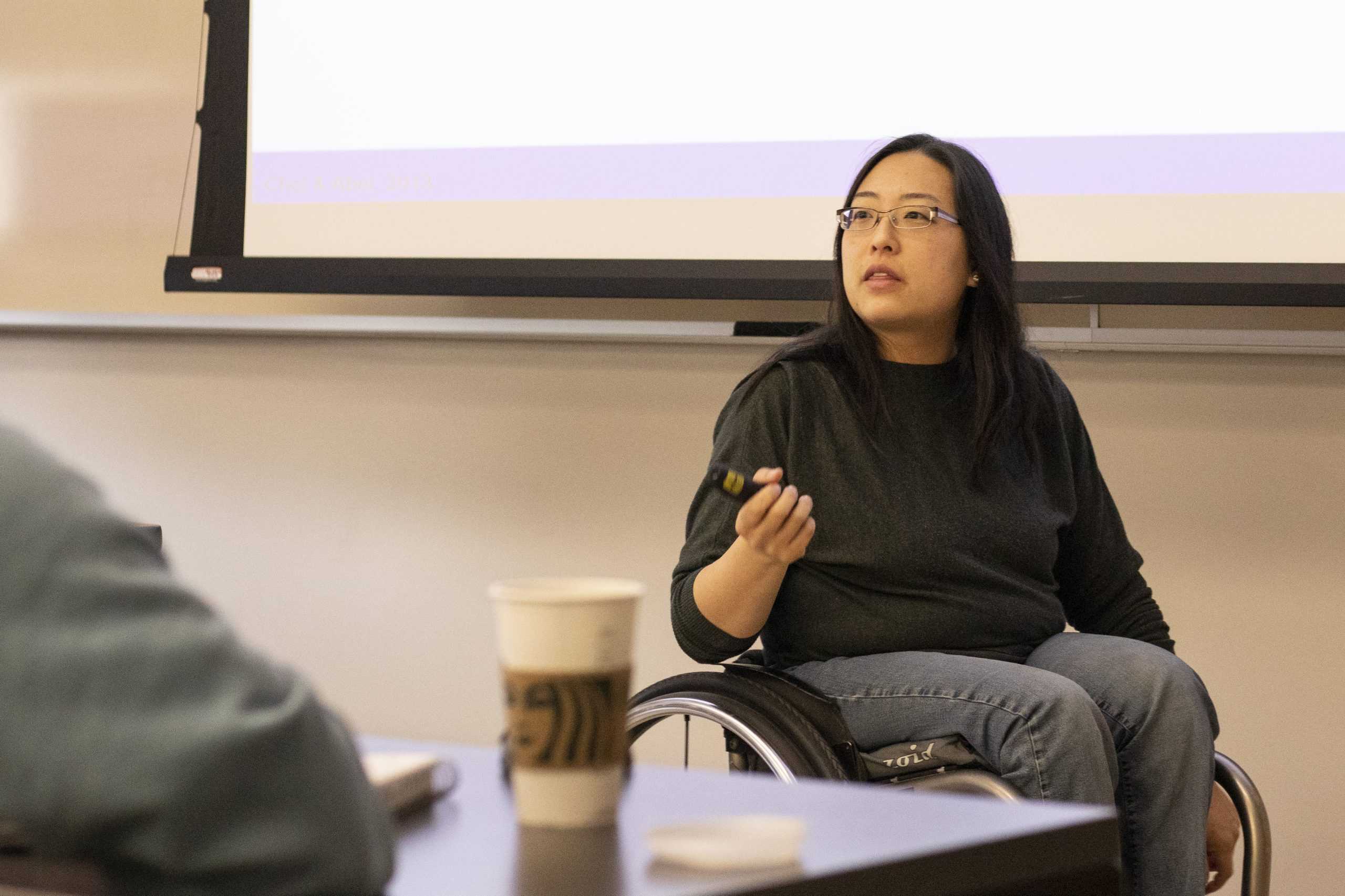Jennifer Tudor, Ph.D., assistant professor of biology, gave a talk titled “Nosh and Neuro,” addressing a room filled with students on the second floor of Post Hall on Jan. 23. She spoke on the subject of translating sleep and memory.
Tudor began by informing students that her initial interest in neuroscience was a result of wanting to understand her own personal experience. She was born with neurodevelopmental disorder, a disorder that disturbs the development of the nervous system.
“I got interested in neuroscience through a personal experience,” Tudor said. “I wanted to try to figure out what was wrong with me.”
Tudor focuses her research on how sleep and disease affect the pathways that are significant for learning, memory and behavior. However, toward the beginning of Tudor’s research career, she wasn’t interested in studying sleep at all.
“That’s a little bit about how the process came from: a college student studying psych to now being a single cell transduction biologist in terms of memory,” Tudor said.
While still in school, Tudor’s research adviser assigned her to study sleep.As a result, Tudor became more interested in the topic of study, especially as research and experimenting continued.
“I tell people that I am a memory researcher who happens to study sleep,” Tudor said. “I find studying sleep more fascinating, interesting and dynamic than I did before.”
Rebecca Roque ’20, a psychology major with minors in behavioral neuroscience and English, said she believes that Tudor’s lecture about her experience is helpful.
“Coming to the ‘Nosh and Neuro’ talks affords me the ability to connect with other neuroscientists,” Roque said. “I learn about potential job opportunities in their labs and hear about studies that otherwise I may not have been exposed to.”
Hailey Abati ’23, a psychology major, said she attended this event because of its relevance to her line of study.
“It is important to know how sleep affects memory,” Abati said. “Memory is a very important part of our everyday lives and the long-run of our lives, and knowing how to better your memory by properly getting sleep is very important.”
Even though Abati is a psychology major, she thought this lecture was interesting because of Tudor’s change of study.
“I found it interesting that she originally did not want to study sleep, she thought it was very boring,” Abati said. “But now looking at her, she has made amazing discoveries and done incredible research on the topic and is now fascinated by it.”
Tudor’s research and work has been featured in publications such as “Science Signaling,” “Journal of Neuroscience” and “Elife.” Roque believes these lectures are very beneficial not only to her, but to the other students and professors studying similar fields at St. Joe’s.
“I find this especially important as a young scientist to learn about new materials in the field so I can better do my job as a researcher,” Roque said. “Additionally, I think it’s important to support members at Saint Joseph’s by making time to hear about the research conducted on our own campus. In doing so, I think we can build a stronger community for students who are interested in pursuing a career in science.”
At the end of the lecture, Tudor encouraged students to widen their knowledge using other fields of study and by connecting to the students in the classroom.
“My learning curve was so steep; it was so hard,” Tudor said. “My encouragement for undergraduates in the room is to learn as much as you can about almost anything that might potentially relate to what you have to learn.”














































